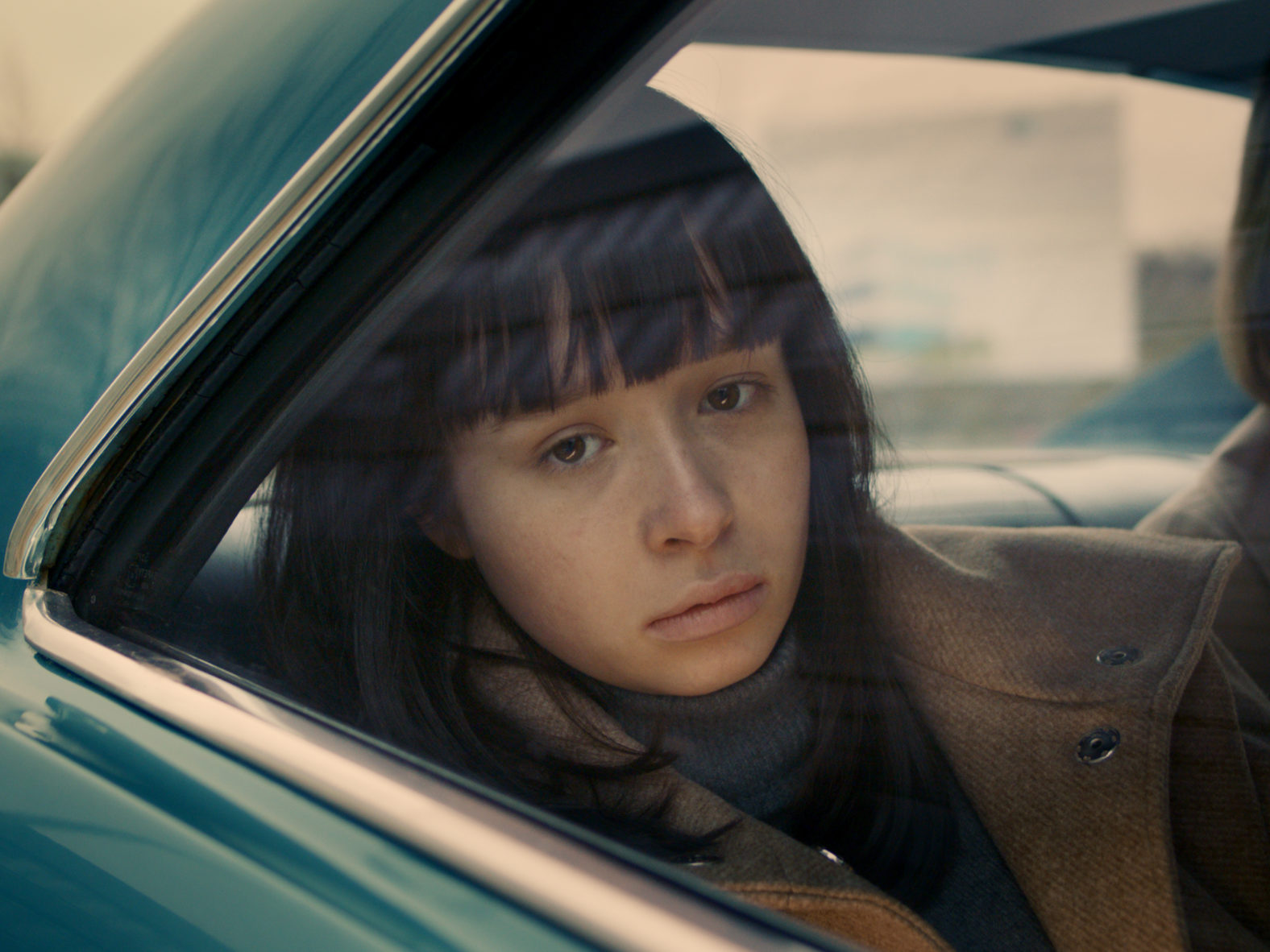In any movie, there is a hierarchy of players. The Main Characters up front who have dialogue, emotions, and storylines. Supporting Characters who exist solely to prop them up. Then there are the Outtakes which don’t make the cut. But what if a supporting character or heaven forbid an Outtake wanted to be something more?
Such is life for Paula (Fine Sindel) a Supporting Character whose dystopian world is just like these movies. A society enforced with an iron fist split into a class structure based on how important to ‘The Plot’ you are. Paula exists just to support her Main Character friend Hannah (Sira-Anna Faal), whose musical family burst into song and dance at a moment’s notice.
Before dying in The Great Massacre uprising, Paula‘s father was a Main Character who bucked trends by falling for her Supporting Character mother, Elisa (Jule Böwe). At the Main Character School, Paula struggles to produce emotional music with her “Heart Reader” (a surgical device which produces emotional musical score). Feeling lost, she sets out to discover more about her father which leads her to meet Miscast (Henning Parker), a burly looking man in an ill-fitting maid’s outfit.
Miscast introduces Paula to the ghetto slums outside of town where the Outtakes reside. There she meets the mistakes, the flubbed lines, the poorly animated, the black and whites, and the general shunned of her world. Paula begins to question the realities that she has been told her entire life and with her ragtag group of new friends, they plan to flip the script and become the main characters of their own storylines!
The Ordinaries is the debut fiction feature film from writer and director Sophie Linnenbaum. Although quite a novelty in its approach, the film is intended primarily to challenge our own societal structures and class prejudices. With meta satire of cinematic tropes and dark humour, the message of the movie is “change the story, change the world”.
The world within The Ordinaries is likely its greatest asset being one we see as oppressive and barbaric, but at the same time scarily familiar. Peppered with nods to filmmaking conventions and clichés, most of which any level of movie fan will be able to appreciate. Many of these are subtle references and homages which Linnenbaum wisely trusts her audience to pick up on without needing to be spoon-fed.
Production design of The Ordinaries works wonders in portraying the separate levels of society. We see Paula and her mother’s dwellings as cold grey brutalist architecture. Supporting Characters are filed away simply to be shipped into the city daily, to be used as background noise for those who really matter. On the contrary, the Outtakes slums, while dilapidated and ramshackle, are brimming with some degree of personality.
Music is used sparingly throughout the film with the idea that being song and feelings are interconnected tangible things. When we hear music, it is often distorted coming from Paula‘s Heart Reader as she tries to force her emotions. Many scenes play out with simple ambient sounds, allowing the films actors to give much more honest performances, unaided by score.
Sindel is great as this character who is not supposed to officially feel anything. But it is Böwe who gives a heartbreaking performance as a mother whose job really is just to worry about her daughter coming home late, night after night. Like many Supporting Characters, she gets stuck in loops unable to think for herself or to go “off script”. In a sad irony, she does feel like a character that is forgotten about for much of the film.
On the downside, while entertaining at times, I’m disappointed that more is not made of The Ordinaries’ core premise. For a film which seeks to be a unique and subversive take on of movie tropes, it is very formulaic in its own way. Eager to focus on the real-world parallels in class struggles, The Ordinaries is a film which takes its time to go exactly where you expect it to. A shorter runtime may have helped, but redundant scenes and long musical numbers wear out their welcome long after the point has been made.
The Ordinaries is a fun film for movie lovers with a positive message of inclusion. Society shouldn’t tell people what they can and can’t be when every one of us has the power to be the Main Character of our own story. Reaching moments of brilliance at times in its technical aspects and performances, The Ordinaries is held back only by its non-committal to be truly unique like the Charlie Kaufman films which inspired it.
